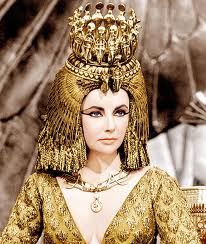ENGL210 JOURNAL ENTRY 8
Falstaff: Honour’s a mere tombstone!
 Cleopatra: Antony thinks ’tis not so.
Cleopatra: Antony thinks ’tis not so.
To die by Roman hand, Roman honour, Roman duty
Is to die most nobly, most rightly
Yet would he see me Rome’s whore
Paraded before plebs, lunged at, laughed at
Till all that was Cleopatra fall into a dust, lost upon the winds of fate!
Falstaff: Nay, but would you not be safe,
To live and laugh another day?
Do not choose a proud man’s folly, be not so grave
Tis foolish to set honour above life,
When none but worms will feed upon your honour in the earth!
 Cleopatra: I am great and mighty Egypt,
Cleopatra: I am great and mighty Egypt,
I will not kneel at Rome’s feet
Caesar will not make me his toy,
A master of men’s minds he may be,
But a mere boy will not make me his trinket,
Cleopatra will ever be mistress of men’s hearts.
Works Cited
Claesz, Pieter. Vanitas. 1630. Royal Picture Gallery Mauritshuis, Netherlands. Royal Picture Gallery Mauritshuis Online. Web. 22 April. 2013.
Cleopatra. Dir. Joseph L. Mankiewicz and Rouben Mamoulian. Perf. Elizabeth Taylor, and Richard Burton.Twentieth Century Fox, 1963. Film. Web. 22 April. 2013.
Grutzner, Eduard Von. Falstaff with a Pewter Tankard.1921. Private Collection. Art Prints On Demand. Web. 22 April. 2013.















